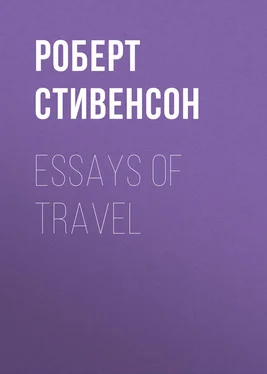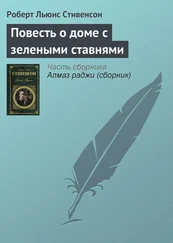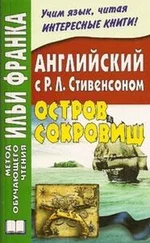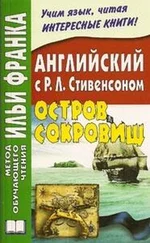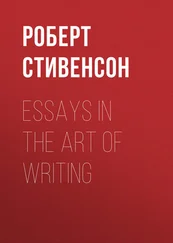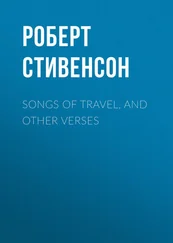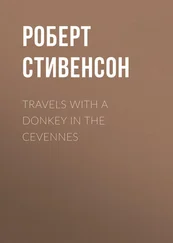Роберт Стивенсон - Essays of Travel
Здесь есть возможность читать онлайн «Роберт Стивенсон - Essays of Travel» — ознакомительный отрывок электронной книги совершенно бесплатно, а после прочтения отрывка купить полную версию. В некоторых случаях можно слушать аудио, скачать через торрент в формате fb2 и присутствует краткое содержание. Жанр: literature_19, foreign_antique, foreign_prose, Путешествия и география, на английском языке. Описание произведения, (предисловие) а так же отзывы посетителей доступны на портале библиотеки ЛибКат.
- Название:Essays of Travel
- Автор:
- Жанр:
- Год:неизвестен
- ISBN:нет данных
- Рейтинг книги:3 / 5. Голосов: 1
-
Избранное:Добавить в избранное
- Отзывы:
-
Ваша оценка:
- 60
- 1
- 2
- 3
- 4
- 5
Essays of Travel: краткое содержание, описание и аннотация
Предлагаем к чтению аннотацию, описание, краткое содержание или предисловие (зависит от того, что написал сам автор книги «Essays of Travel»). Если вы не нашли необходимую информацию о книге — напишите в комментариях, мы постараемся отыскать её.
Essays of Travel — читать онлайн ознакомительный отрывок
Ниже представлен текст книги, разбитый по страницам. Система сохранения места последней прочитанной страницы, позволяет с удобством читать онлайн бесплатно книгу «Essays of Travel», без необходимости каждый раз заново искать на чём Вы остановились. Поставьте закладку, и сможете в любой момент перейти на страницу, на которой закончили чтение.
Интервал:
Закладка:
Next, to turn to topics more agreeable, we had a newly-married couple, devoted to each other, with a pleasant story of how they had first seen each other years ago at a preparatory school, and that very afternoon he had carried her books home for her. I do not know if this story will be plain to southern readers; but to me it recalls many a school idyll, with wrathful swains of eight and nine confronting each other stride-legs, flushed with jealousy; for to carry home a young lady’s books was both a delicate attention and a privilege.
Then there was an old lady, or indeed I am not sure that she was as much old as antiquated and strangely out of place, who had left her husband, and was travelling all the way to Kansas by herself. We had to take her own word that she was married; for it was sorely contradicted by the testimony of her appearance. Nature seemed to have sanctified her for the single state; even the colour of her hair was incompatible with matrimony, and her husband, I thought, should be a man of saintly spirit and phantasmal bodily presence. She was ill, poor thing; her soul turned from the viands; the dirty tablecloth shocked her like an impropriety; and the whole strength of her endeavour was bent upon keeping her watch true to Glasgow time till she should reach New York. They had heard reports, her husband and she, of some unwarrantable disparity of hours between these two cities; and with a spirit commendably scientific, had seized on this occasion to put them to the proof. It was a good thing for the old lady; for she passed much leisure time in studying the watch. Once, when prostrated by sickness, she let it run down. It was inscribed on her harmless mind in letters of adamant that the hands of a watch must never be turned backwards; and so it behoved her to lie in wait for the exact moment ere she started it again. When she imagined this was about due, she sought out one of the young second-cabin Scotsmen, who was embarked on the same experiment as herself and had hitherto been less neglectful. She was in quest of two o’clock; and when she learned it was already seven on the shores of Clyde, she lifted up her voice and cried ‘Gravy!’ I had not heard this innocent expletive since I was a young child; and I suppose it must have been the same with the other Scotsmen present, for we all laughed our fill.
Last but not least, I come to my excellent friend Mr. Jones. It would be difficult to say whether I was his right-hand man, or he mine, during the voyage. Thus at table I carved, while he only scooped gravy; but at our concerts, of which more anon, he was the president who called up performers to sing, and I but his messenger who ran his errands and pleaded privately with the over-modest. I knew I liked Mr. Jones from the moment I saw him. I thought him by his face to be Scottish; nor could his accent undeceive me. For as there is a lingua franca of many tongues on the moles and in the feluccas of the Mediterranean, so there is a free or common accent among English-speaking men who follow the sea. They catch a twang in a New England Port; from a cockney skipper, even a Scotsman sometimes learns to drop an h ; a word of a dialect is picked up from another band in the forecastle; until often the result is undecipherable, and you have to ask for the man’s place of birth. So it was with Mr. Jones. I thought him a Scotsman who had been long to sea; and yet he was from Wales, and had been most of his life a blacksmith at an inland forge; a few years in America and half a score of ocean voyages having sufficed to modify his speech into the common pattern. By his own account he was both strong and skilful in his trade. A few years back, he had been married and after a fashion a rich man; now the wife was dead and the money gone. But his was the nature that looks forward, and goes on from one year to another and through all the extremities of fortune undismayed; and if the sky were to fall to-morrow, I should look to see Jones, the day following, perched on a step-ladder and getting things to rights. He was always hovering round inventions like a bee over a flower, and lived in a dream of patents. He had with him a patent medicine, for instance, the composition of which he had bought years ago for five dollars from an American pedlar, and sold the other day for a hundred pounds (I think it was) to an English apothecary. It was called Golden Oil, cured all maladies without exception; and I am bound to say that I partook of it myself with good results. It is a character of the man that he was not only perpetually dosing himself with Golden Oil, but wherever there was a head aching or a finger cut, there would be Jones with his bottle.
If he had one taste more strongly than another, it was to study character. Many an hour have we two walked upon the deck dissecting our neighbours in a spirit that was too purely scientific to be called unkind; whenever a quaint or human trait slipped out in conversation, you might have seen Jones and me exchanging glances; and we could hardly go to bed in comfort till we had exchanged notes and discussed the day’s experience. We were then like a couple of anglers comparing a day’s kill. But the fish we angled for were of a metaphysical species, and we angled as often as not in one another’s baskets. Once, in the midst of a serious talk, each found there was a scrutinising eye upon himself; I own I paused in embarrassment at this double detection; but Jones, with a better civility, broke into a peal of unaffected laughter, and declared, what was the truth, that there was a pair of us indeed.
EARLY IMPRESSIONS
We steamed out of the Clyde on Thursday night, and early on the Friday forenoon we took in our last batch of emigrants at Lough Foyle, in Ireland, and said farewell to Europe. The company was now complete, and began to draw together, by inscrutable magnetisms, upon the decks. There were Scots and Irish in plenty, a few English, a few Americans, a good handful of Scandinavians, a German or two, and one Russian; all now belonging for ten days to one small iron country on the deep.
As I walked the deck and looked round upon my fellow-passengers, thus curiously assorted from all northern Europe, I began for the first time to understand the nature of emigration. Day by day throughout the passage, and thenceforward across all the States, and on to the shores of the Pacific, this knowledge grew more clear and melancholy. Emigration, from a word of the most cheerful import, came to sound most dismally in my ear. There is nothing more agreeable to picture and nothing more pathetic to behold. The abstract idea, as conceived at home, is hopeful and adventurous. A young man, you fancy, scorning restraints and helpers, issues forth into life, that great battle, to fight for his own hand. The most pleasant stories of ambition, of difficulties overcome, and of ultimate success, are but as episodes to this great epic of self-help. The epic is composed of individual heroisms; it stands to them as the victorious war which subdued an empire stands to the personal act of bravery which spiked a single cannon and was adequately rewarded with a medal. For in emigration the young men enter direct and by the shipload on their heritage of work; empty continents swarm, as at the bo’s’un’s whistle, with industrious hands, and whole new empires are domesticated to the service of man.
Читать дальшеИнтервал:
Закладка:
Похожие книги на «Essays of Travel»
Представляем Вашему вниманию похожие книги на «Essays of Travel» списком для выбора. Мы отобрали схожую по названию и смыслу литературу в надежде предоставить читателям больше вариантов отыскать новые, интересные, ещё непрочитанные произведения.
Обсуждение, отзывы о книге «Essays of Travel» и просто собственные мнения читателей. Оставьте ваши комментарии, напишите, что Вы думаете о произведении, его смысле или главных героях. Укажите что конкретно понравилось, а что нет, и почему Вы так считаете.
